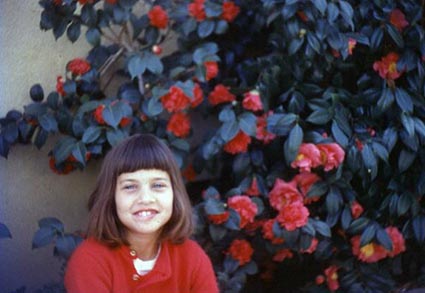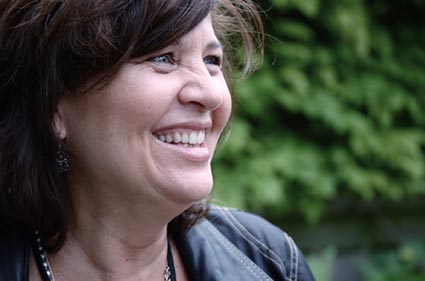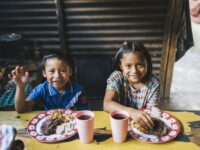I remember when I was a kid and thought the year 2000 was a million years away. That’s because as a kid you can’t really see yourself as an old(er) person, a grownup, an adult. A child lives and thinks in the present.

I figured out that in the year 2000 I would be 42 years old, and that was something I couldn’t see, let alone believe.
And here it is, 2013, if you are good at math, then you know how old I am. And I’m still thinking like a kid, or maybe I just want to as long as possible.

People tell me I have a natural connection with children. For whatever reason that may be, I see it as one of the most valuable gifts I have been given.
Children are our most prized and valuable “resource” because they force us to stay in the present, while hoping for a better future. Unfortunately, children are at the bottom of the priority list for governments and world leaders. Take a look at any country in social, economic, or spiritual trouble, and I guarantee you that the children are suffering the most.
My love for kids is not unrealistic, nor do I view them as little princes and princesses (as modern culture often does). This perspective reflects lack of real respect and genuine interest in children for who they truly are.
They are people in various stages of youth. They have feelings. They are valuable to God and His creation. They are worthy of our attention, resources, time and, most importantly, love. Their wellbeing is a direct reflection of our ability to take care of ourselves. They are “us” in the future.
Unfortunately, I see poverty even in the wealthiest countries when it comes to our children. From the poorest of neighborhoods in the far east to the malls of Los Angeles, our children are starving.
Mother Theresa said that the worst poverty of all is loneliness and the feeling of being unloved. It has been my experience that this is true.
Wherever I go and meet children and young people, their main fear is that of being forgotten, ignored, unloved. It has nothing to do with money and everything to do with what we adults, leaders, society, and governments deem valuable.
Shame on us grownups.
ABOUT THE AUTHOR: Lee Ann Vermeulen-Roberts is a writer, composer and music producer. Lee Ann sponsors a child from Indonesia and is the Kids Crew Compassion ambassador for Compassion Netherlands.







6 Comments |Add a comment
I appreciate both the blog post and the comments. I can’t say that I agree with Mother Theresa on this one–and I’m getting a little tired of hearing Christians quote her, as if she were the end all, be all, and know all. She did wonderful work with her life; I recognize that, and I honor her for that.
But Christians, we have the Word of God that speaks more eloquently than even Mother Theresa, and His Word says plenty about how we are to treat children, the poor, the oppressed, the hungry, etc.
Back to my disagreement with Mother Theresa: I have experienced profound loneliness, and I have felt unloved. But I always had hope that, one day, I would know love and would no longer be lonely.
As my own mother once said, “There are worse things than being lonely.” I know–tell that to a little child who feels unloved and unvalued. But I believe, and not only because I have heard Wess Stafford say it, many times, that the worst poverty is the loss of hope, when there are no options, no choices, but the reality we face.
I believe with all my heart that Compassion’s message of hope in Jesus Christ is our greatest gift to the children we sponsor. That is why I sponsor children through Compassion, and not some other organization.
Hi Vicki! Thank you for your thoughtful comments! I completely agree that the worst poverty is the loss of hope. I’ve been in two types of homes in the countries where Compassion works. One type of home is is severely impoverished but the presence of God and the hope that comes from God is completely present there. I’ve also been in homes where there was no hope. Being in the homes without hope leaves you with a despair that doesn’t compare to the physical poverty they were living in.
We were listening to Christian radio last night when someone was talking about an orphanage they were building in Haiti. My 6 year old daughter said she knew what “orphan” meant but what was an “orphanage”? I explained to her what an orphanage was and what it provided to children with no parents. My daughter was incensed! She couldn’t believe it. She said “you mean to tell me that with all the houses everywhere and all the grown-ups in all the houses, that they have to build special houses called orphanages because no grown-ups will take them into their houses?” She was outraged and it didn’t compute for her.
I have raised an abandoned child and i know first hand how difficult it is. Its probably the hardest thing I’ve ever done, financially, emotionally and even spiritually. I understand that not everyone can open their home and raise a child who is not their own. I know my 6 year old doesn’t understand poverty, but she has a sense of the value of a child.
Sometimes as adults, we put higher value or higher priority on other things besides children. Jesus said, “Take heed that ye despise not one of these little ones; for I say unto you, That in heaven their angels do always behold the face of my Father which is in heaven.” (Matt. 18:10)
There are adults for whom children are a priority and others for whom they are not. Ask yourself “what is a higher priority than a child?” Look at the needs of the children in your world and ask yourself “what can I do about those needs?”
Wow, Kathy, I really loved reading your comment! Your daughter’s words certainly are convicting! Thanks so much for sharing this! Isn’t it amazing how children can bring us back to a Kingdom perspective?
@Beth L. I liked the fact that for once someone wasn’t telling me what to do, I was left to do that for myself.
I guess I am having a hard time with the way all of this is summed up. Is there something lost in translation or in the editing process?
This begins with trying to explain that you are close to children and understand their needs. You, the writer, tell me that children are valuable, and I understand that. I even like the part about not being totally unrealistic and thinking children are princes and princesses but real people that want to be loved. They are our future. And, poverty is everywhere.
And then, your final point is that I am supposed to be ashamed of myself? What did I do? What do you want me to do differently?